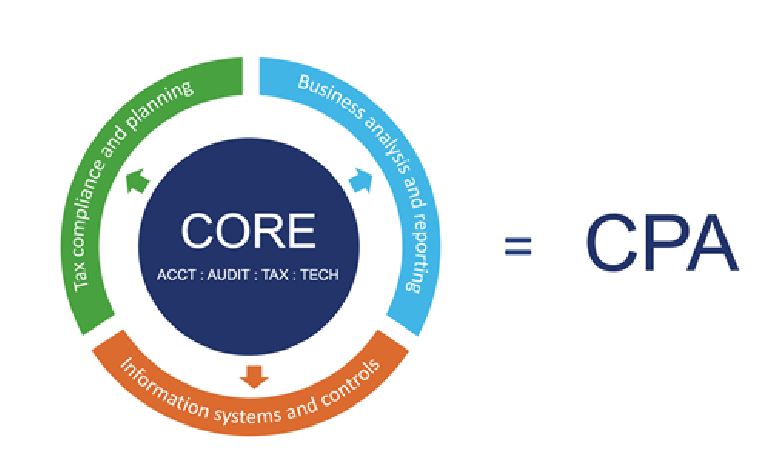What is the one word that sums up 2020 for you? Excluding "pandemic", of course, I think of the word "adapt".
For years we have been discussing preparing for disruption, and certainly 2020 disrupted us all. Some have adapted, while others have reacted. There is a difference in these approaches, and they impact the future readiness of a person, an organization, and even and entire profession.
For example, some tax & accounting professionals have been anxious about the advancement of technology. They fear artificial intelligence, robotic process automation (RPA), and blockchain will automate them out of a job. Adding to that anxiety, the global pandemic has accelerated our adoption of technology by five years within just two months, according to McKinsey Digital, and technologies like RPA are projected to be nearly universally adopted by 2023, according to a survey conducted by Deloitte in 2017. This would mean RPA will be something we all should be interacting with soon, and in the tax & accounting industry that means RPA could automate rules-based processes including many accounting processes, such as accounts payable. However, these technologies first need to be “trained” properly to be a valuable tool for the accounting team.

Image source: CPAEvolution.org
The American Institute of Certified Public Accountants (AICPA) and the National Association of State Boards of Accountancy (NASBA) collaborated on adapting the licensing requirements for certified public accountants (CPAs) to address evolving skills and competencies needed in the future for relevant accounting professions. As of January 2024, technology will be one of the four knowledge areas at the core of being a CPA. Newly licensed CPAs will be aware and knowledgeable on technology issues to better protect the interests of the public, their organizations, and clients. Employers have recognized the need for a team that has mastery over accounting and technology skills, and have been debating whether to hire technologists or accountants. In the near future, fortunately, CPAs will be versed in both.
Experienced accounting professionals who resist technology will now be competing with CPAs who have a better grasp on the essential tools that impact the processes they audit and perform. Given this, how will those accounting professionals who continue to ignore technology stay relevant, especially as such technology becomes so pervasive in our lives that we are almost unaware that we are using it? This is where those professionals need to adapt and not react.
If your frame of mind is that you are waiting for things to go back to normal and reverse the progress that has come out of the chaos in 2020, you are reacting, not adapting. And reacting puts you in a defensive position that is constantly competing for opportunities.
Instead, take a look at those professionals in any industry who are excelling this year. They are monitoring hard and soft trends, and adapting their strategies quickly. As an experienced accounting professional, the trends to which you need to be adapting include:
- Advanced technology increasingly entering the daily work of accountants.
- Employers looking to staff accounting teams are more often hiring professionals outside accounting, and newly licensed CPAs will have technology as a core competency.
- Clients value your wisdom more than the compliance work. (Think of the urgent questions brought to you this year. Were they compliance-oriented or were they seeking advice?)
This creates tremendous opportunity for experienced, knowledgeable accountants to succeed as trusted advisors, and not be commoditized, as long as they explore the possibilities and leverage the complexity.
Jeffrey Rogers, a principle at tech-futurist group be radical explains this opportunity succinctly. “Competitive advantage today is not through scaling production but scaling learning,” Rogers says. “Those that can learn the fastest and solve complex, adaptive challenges will win.”
Indeed, there are many ways to become more aware and informed on technology in order to stay competitive. For example, you can develop bi-directional mentor relationships with those within (and without) your organization who are more tech savvy. Impart your wisdom on them, and ask them to mentor you on emerging technologies, or tools currently at your disposal. You can even establish this kind of relationship with clients as well. Find communities of professionals that are future forward, like Digital CPA from CPA.com, the technology subsidiary of the AICPA, to stay aware of the discussions taking place, even if you aren’t yet ready for that level of tech-talk.
Part of being future-ready is being aware and predictive as well. Pay attention to technology advancements in niche industries you focus on. The agricultural industry, for example, is now using the Internet of Things to track livestock (inventory) throughout their supply chain. Tap into your curiosity and begin asking how such innovations will impact how you report and collect data. Today, continual learning is a part of being an accounting professional, and we are always expanding the areas on which accounting professionals can focus.
And this is crucial to remember, because positions in the tax & accounting profession will continue to be under pressure as technology continues to advance, but those that do not adapt may find their opportunities quite limited.
Adaptive industry professionals, however, will identify how technology and the post-pandemic new normal will offer opportunities for them to deliver more value to their organizations and to their clients.







